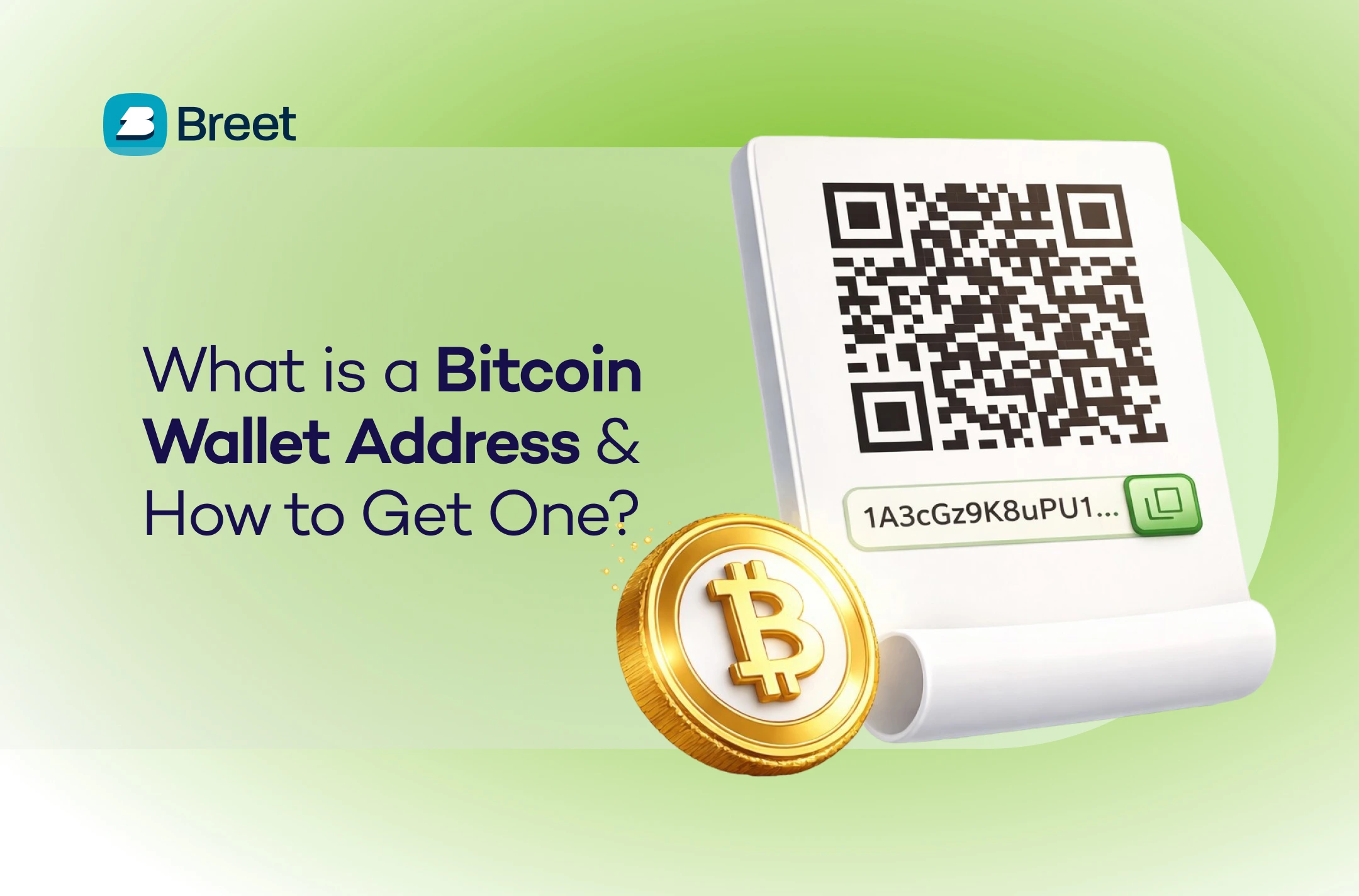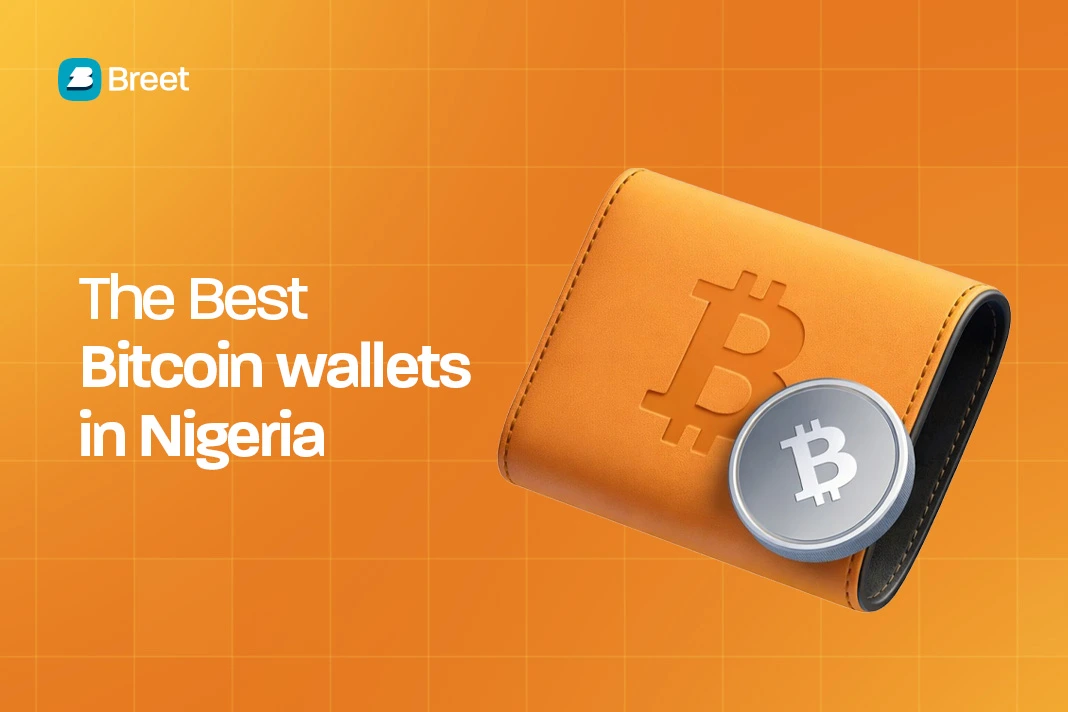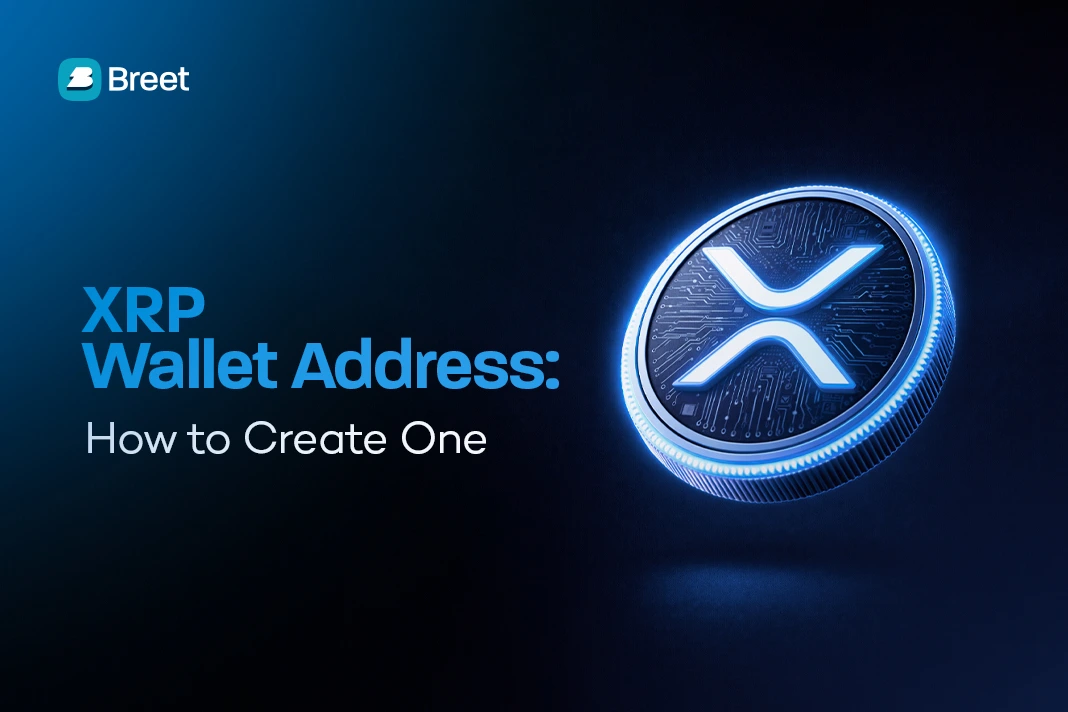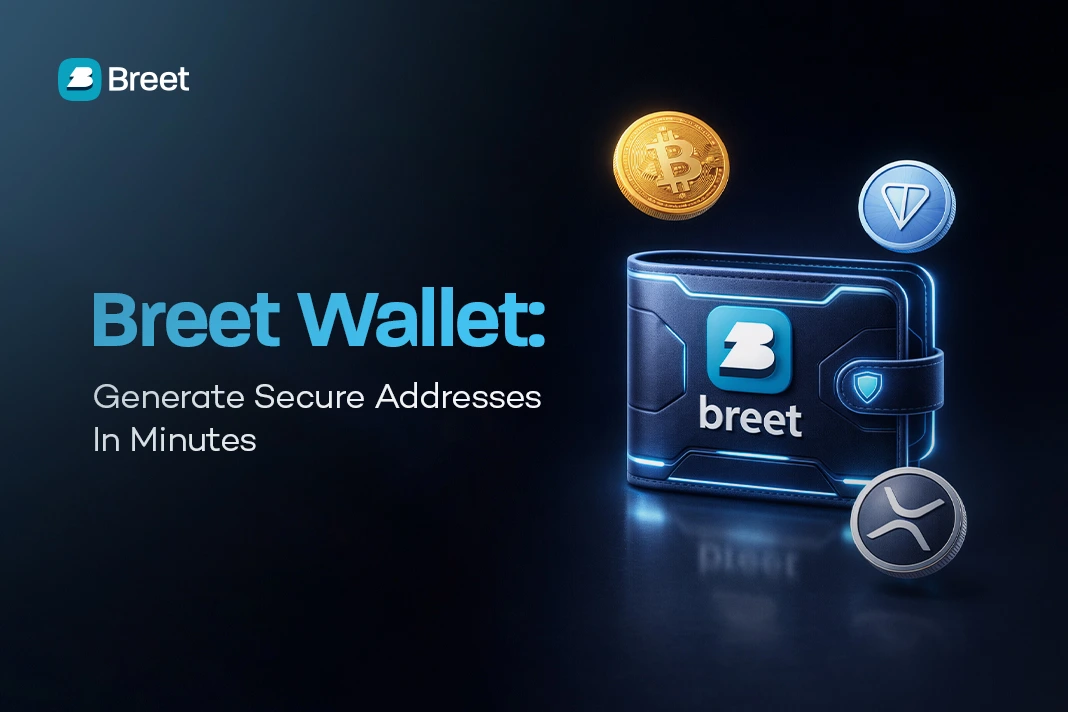Are you struggling to pick what type of crypto wallet to use and feeling overwhelmed by the sheer volume of information? You’re not alone.
Millions of people are caught in the crypto frenzy, but with so many exchanges and wallet providers to choose from, it’s easy to feel lost in a sea of options. The question is, how do you pick the best one for your needs?
In this article, I’ll explain everything you need to know about custodial and non-custodial wallets, their pros and cons, and help you make an informed decision.
Before we begin, it is important to understand there are two types of wallets:
- Hardware wallet
- Software wallet
These wallets have two main components: a public key and a private key.
A public key is the address of your crypto wallet, which is required for transferring money into a user’s crypto wallet. A private key, like your home key or password, is used to access your funds or sign a crypto transaction.
What Is a Custodial Crypto Wallet?
A custodial wallet is a crypto wallet service offered by a centralised business such as a crypto exchange.
The cool thing about custodial wallets is that you don’t have to worry as much about managing your private keys, which is usually a big responsibility.
When you outsource wallet custody to a business, you’re basically handing over your private keys to them and trusting them to keep them safe.
Sending coins out of a custodial wallet is a breeze – just log in with your username and password, pop in the public key of where you wanna send your coins, and voila!
Top list of custodial wallets in 2025
Pros of Custodial Wallets
1. Convenient and Easy To Use
Custodial wallets are a great option for beginners just getting started with cryptocurrencies, as they do not require extensive knowledge of blockchain technology to use them.
This means you can easily buy, store, and sell crypto without understanding the complexities of the underlying technology.
Instead, you can rely on the service provider to manage the wallet’s technical details, such as security, backups, or maintenance.
2. Customer support
Since a third-party service provider manages custodial wallets, they have dedicated customer support to assist you with any issues.
If you experience any issues with your wallet, such as difficulty logging in, trouble sending or receiving cryptocurrency or concerns about security, you can contact the wallet provider’s customer support team for assistance.
This can be particularly helpful if you are a beginner in the crypto world and may need guidance or support with using your crypto wallet.
3. Higher security measures
These wallets are usually backed by larger companies with more resources to apply suitable security measures, such as two-factor authentication and other security protocols, to protect your funds.
With a custodial wallet, you do not have to worry about managing your own security measures, as the service provider takes care of this on your behalf.
The service provider will usually implement a range of security measures to protect your wallet and funds, including measures to prevent hacking attempts, malware attacks, and other types of security breaches.
4. Recoverability of funds
In case of loss of private keys or other issues, custodial wallets usually have processes to help you recover your funds if any issue occurs.
If you lose access to your crypto wallet, you can contact the wallet provider’s customer support team for assistance with recovering your funds.
The service provider will typically have a process to verify your identity and ensure that you are the rightful owner of the funds before taking steps to recover the funds and restore access to the wallet.
Cons of Custodial Wallets
1. Loss of control over funds
Custodial wallets require users to trust third-party companies with their funds, meaning they lose control over their cryptocurrencies.
With a custodial wallet, you entrust your funds to a company and renounce control over them. If the company experiences a security breach or goes bankrupt, your funds could be at risk.
2. Risk of hacks and theft
Over the years, we have heard and even experienced cases of exchange hacks and scams, like Mt. Gox, QuadrigaCX, BTC-e, and Bitstamp, which have left millions of people distraught.
This often happens when the wallet provider’s security measures are not strong enough, and since custodial wallets are connected to the internet, they are vulnerable to cyber-attacks.
3. Fees
Most custodial wallets charge certain transaction fees, such as deposit, withdrawal, and monthly fees.
These wallet providers charge for their services, and you may not get the most out of your investment because of these various charges, which accumulate over time.
4. A limited selection of cryptocurrencies
With Custodial wallets, most are limited in the types of cryptocurrencies they support.
I’ve even encountered an exchange that only supports Bitcoin, so what if you want to store or trade Ethereum?
The lack of other crypto coins could limit your investment options.
What Is a Non-Custodial Crypto Wallet?
A non-custodial wallet is a type of Blockchain wallet that lets you be your own bank. This means you control your funds and the associated private key.
Non-custodial wallets generate a unique private key that no one can access but you. This private key is used to sign and verify transactions on the blockchain network.
You can use your non-custodial wallet through a software application or a web-based interface. You can view your balance, send and receive crypto, and even manage your wallet settings.
Best Non-Custodial Wallets in 2025
Pros of Non-Custodial Wallets
1. Total Control Over Funds
Non-custodial wallets give you complete control over your cryptocurrencies and private keys, which means they are not reliant on third-party companies.
This control allows you to manage your funds as you see fit, such as transferring, storing, or trading them without restrictions or limitations.
2. Increased Security
Since a third party does not manage non-custodial wallets, you are responsible for your security and can take measures to protect your funds.
You can use advanced security measures, such as multi-factor authentication, strong passwords, and hardware wallets, to secure your private keys and keep your funds safe from potential hacks or breaches.
3. Privacy
Non-custodial wallets provide greater privacy, as you do not need to provide personal information to a third-party company.
This anonymity helps you maintain your financial privacy, preventing potential data breaches from exposing sensitive personal information.
4. Greater Selection of Cryptocurrencies
Non-custodial wallets may support a broader range of cryptocurrencies, providing users with more investment options.
This diversity enables users to invest in various cryptocurrencies and diversify their portfolios to reduce risk.
Cons of Non-Custodial Wallets
1. Greater responsibility
With a non-custodial wallet, you must take responsibility for your security and back up your private keys, which can be quite difficult.
This responsibility can be overwhelming, especially if you are a crypto newbie, and any mistake or oversight can result in the loss of funds.
2. A lost key equals lost money
I know everyone prays against this, but there’s still a possibility of it happening. C’mon, we’ve all heard stories of crypto millionaires who lost their fortunes due to the loss of private keys.
When you lose the key to your wallet, it basically means that you have lost your funds and assets. Unfortunately, there is no other option to get the money back.
Custodial vs Non-Custodial Wallets: Which Should You Pick?
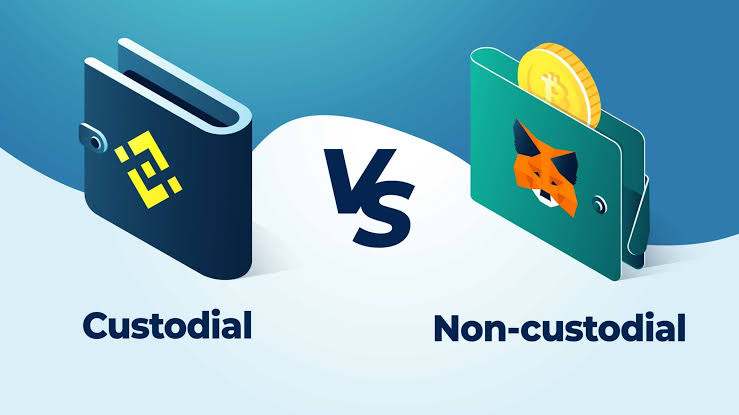
We have analysed custodial and non-custodial wallets and their pros and cons, so you might already know the type of wallet you’re leaning towards. You may still be confused, but don’t worry too much.
When choosing whether to use a custodial or non-custodial wallet, you must know there is no right or wrong option.
So, how do you pick which to use? It all depends on your financial goals, needs and your capabilities.
If you are a beginner, you should start with a custodial wallet, and then, as you become more experienced, you can venture into a non-custodial one.
But this doesn’t mean that only beginners use custodial crypto wallets. In fact, you might be shocked to find out that many OGs and experts still use this type of wallet but also have non-custodial ones.
Ultimately, it all depends on you, what you want, and the risks you are willing to take.
Frequently Asked Questions (FAQs) About Custodial vs Non-Custodial Wallets in 2025?
How safe are custodial wallets?
Custodial wallets are usually backed by larger companies with more resources to apply suitable security measures, such as two-factor authentication and other security protocols, to protect your funds.
Can I recover my crypto if I lose my seed phrase?
In a custodial wallet, people give up the control of their key to a third party in exchange for access to a password. If this password is lost or forgotten, you can recover it.
However, if you use a non-custodial wallet, you cannot retrieve it when your private key is lost.
Which crypto wallet type is best for beginners?
If you are a beginner, you should start with a custodial wallet, and then, as you become more experienced, you can venture into a non-custodial one.
Difference between custodial and non-custodial wallets
- Custodian of the private key: With a custodial wallet, you give up the control of your key to a third party, but with a non-custodial wallet, you have full control of your private key.
- Real-time transaction: To perform transactions with a custodian wallet, you need permission from a central authority, which is not the case with a non-custodial wallet.
- Security: Non-custodial wallets have a higher level of security because the private key and data remain intact unless the key is lost or stolen. However, custodial wallets store your keys and data on servers globally, which makes them vulnerable to breaches.
Backup and recovery possibility: Custodial wallets keep the key in their possession to reclaim access if you lose data entry. However, this is not attainable in the case of non-custodial wallets because you are the sole authority.
Conclusion
In conclusion, choosing between a custodial or non-custodial crypto wallet depends on your preferences and needs. Custodial wallets may offer convenience and additional services but come with a higher level of risk and less control over your assets.
On the other hand, non-custodial wallets provide greater security and control but may require more effort and responsibility.
Educate yourself on best practices for securing your wallet, such as using strong passwords, enabling two-factor authentication, and keeping your private keys safe.
With the proper knowledge and the right crypto wallet, you will be well on your way to becoming a successful crypto trader. Good luck!

